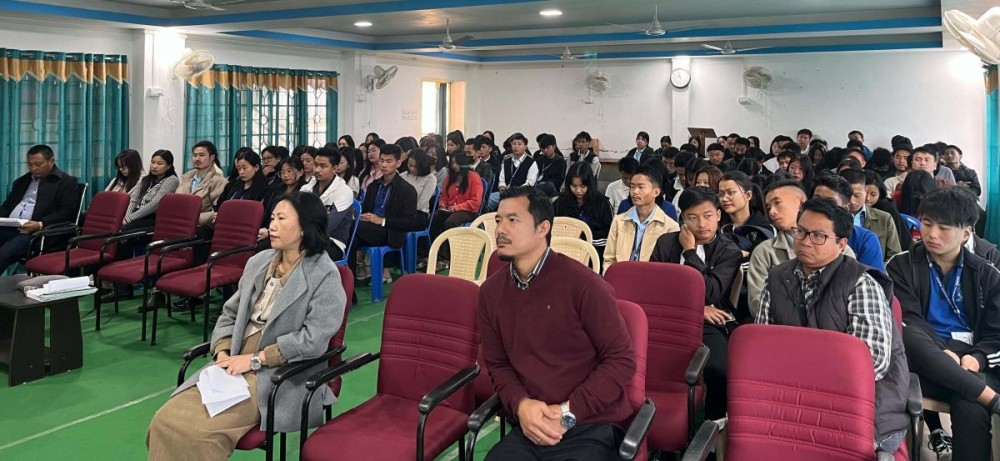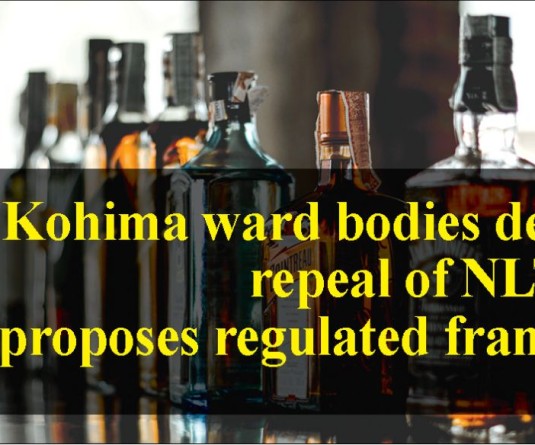Department of Political Science at St Joseph University organized the second annual culture lecture series on February 12.

SJU’s Culture Lecture Series II examines indigenous narratives and cultural preservation
CHÜMOUKEDIMA, FEBRUARY 12 (MExN): The Department of Political Science at St Joseph University organized the second annual Culture Lecture Series on February 12 under the theme “Whose story is it anyway? The politics of cultural documentation.”
The primary participants were postgraduate students from the Department of Political Science and English, research scholars and faculty. The program was coordinated by Dr Somingam Mawon and Dr Shonreiphy Longvah, both Associate Professors in the Department of Political Science. The guest speaker was Prof Nandini Sahu, an eminent poet and the Vice-Chancellor of Hindi University, West Bengal.
Dr Mawon, in his introductory note, emphasized the urgent need to preserve dying cultural traditions, urging special academic and policy-driven initiatives for the preservation and documentation of such vanishing culture.
One central focus of Prof Sahu’s lecture was on the historical neglect of indigenous communities in academic research. She stressed the importance of integrating folklore into the education system and suggested that Naga traditions be offered as an elective course in higher education.
Drawing from the research inquiries of the guest speaker, she encouraged reflection on critical questions such as who controls cultural narratives, who decides what is preserved, can storytelling serve as a tool for resistance, who is trying to silence whom, who consumes the Naga story, and who writes its next chapter? These thought-provoking questions underscored the ongoing struggle for narrative sovereignty and the power dynamics shaping cultural storytelling.
Prof Sahu also shed light on the significant influence of translators, noting that translation can be political and shapes how indigenous stories are understood. She delved into discussions on body politics and body politik, as well as how political thought and mythology converge to influence governance. She further explored how some tribal oral traditions have been reinterpreted through the lens of Christianization, demonstrating how external forces have reshaped indigenous storytelling.
Challenging the dominance of colonial narratives, Prof Sahu criticized the Eurocentric perspectives that have long influenced historical writings. She emphasized the necessity of rewriting and reclaiming oral traditions from an indigenous viewpoint, urging communities to take charge of their own stories.
Concluding her lecture, she encouraged scholars and cultural advocates to rethink and retell these narratives, ensuring that marginalized voices are heard and their histories preserved for future generations.
The lecture ended with a word of gratitude from K Tohuto, Assistant Professor, Department of Political Science.




